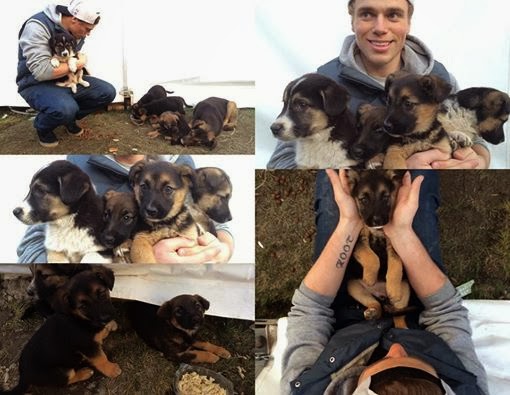David Backes, the St. Louis Blue's hockey captain brought home stray Sochi puppies from the 2014 Winter Olympics. David and his wife Kelly, rescued the pups off of the streets in sochi to save them from being exterminated. The puppies were taken back to St. Louis in order to find loving homes. The couple have four rescue dogs and two rescue cats at home in the United States and are working to spread awareness to the public for animal rights.
"We're just trying to widen our scope to help animals across the (U.S.) and across the world, and doing what we can," Backes said Tuesday. CBS
-
American media and acting icons Katherine Heigl and Ali Fedotowsky team up to raise awarness about the Sochi dogs. Katherine has already started a foundation for stray dogs called Jason Debus Heigl Foundation to help pups find new homes.
Ali was in Sochi covering the 2014 Winter Olympics and returned home with two Sochi pups, and Katherine waited anxiously at the airport for the dogs to arrive in LAX. Both Katherine and Ali are working to help them find loving homes. As soon as the dogs arrived, they received medical attention and a weekend to recover from travels before meeting their new families.
-
Gus Kenworthy, the silver medalist of the men's ski slope style competition in the 2014 Winter Olympics fell in love with four Sochi puppies. Gus has been buying kennels and leashes in the meantime in Sochi before he can bring them home. Gus states that he visited them everyday because the dogs were not allowed in the olympic village. Gus and his pups























